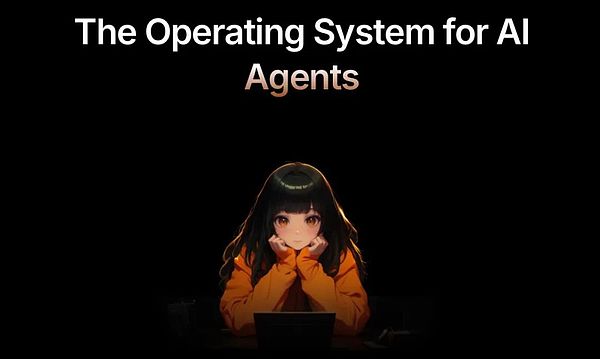
In 1966, MIT computer scientist Joseph Weizenbaum created a program called ELIZA, a program that could use some rules and language structures to A program that imitates user input text and realizes simple human-computer interaction. Although ELIZA's functions were very basic and did not possess real understanding capabilities, it inspired people's unlimited imagination of the potential of human-computer interaction. However, this pioneering experiment left a stunning glimpse in the chapter of natural language processing and became the foundation of modern artificial intelligence. One of the starting points for intellectual development.
Fast forward to 2024, and the name "Eliza" once again appears as a hot topic in the context of Web3. This time, it is no longer a gadget for simulating conversations, but an underlying framework that supports the construction and operation of agents in the Web3 world.
It allows developers to quickly create multi-functional AI agents that can automatically complete transactions, perform governance tasks, and even analyze on-chain data in real time. And is expected to completely change the way people interact with blockchain.
Pic Source: https://elizaos.ai
Why is Eliza suddenly popular?
Technology is an old story, but trends are the new story
The rise of AI agents Behind the scenes is the "marriage of the century" between AI and blockchain. Moving from technical concepts to practical applications has become a hot topic in the field of encryption. These agents are not only tools, but also "independent economies." By executing tasks autonomously, they are redefining "participation" and "value" in Web3. Just as ELIZA opened the door to human-computer interaction, today's Eliza framework is also reshaping the relationship between people and on-chain networks.
New decentralized participants
Another attraction of AI agents is that They can integrate seamlessly with the decentralized economy. Relying on the Eliza framework, developers can build powerful agents, such as ai16z, a virtual venture capital fund that can analyze and summarize the information and files exchanged by users in special social channels in real time, and formulate investments based on different message weights.Make decisions and complete on-chain interactions.
This model shows a new possibility: humans are not the only economic participants, and intelligent agents can also become key nodes in the value chain.
Pic Source: https://elizaos.ai
From framework to function: the engine behind the AI agent
The AI Agent framework is the core of building and running AI agents Tools allow developers to quickly deploy intelligent agents, while users can obtain unprecedented services and value through these agents. From investment assistance to content generation, the functions of agents are rapidly expanding, and the framework behind them has become a key driver of innovation in the crypto industry. Compared with NFT or meme, intelligent entities may show stronger long-term value potential in the future due to their functionality and sustainable business model.
An interesting example is how the Eliza framework allows ai16z to automate investing. Based on the Eliza framework, ai16z created a virtual venture capital fund that uses agents to drive investment decisions. It is not a simple buying and selling operation, but analyzes on-chain data through machine learning models to provide real-time insights to the community. With its modular design and open source ecosystem, Eliza's application areas cover social integration, asset issuance, and analytical insights, demonstrating the diversified potential of the AI Agent framework. This not only improves the efficiency of on-chain governance, but is also expected to push the concept of decentralized autonomy to a new level.
The "Elizas" in Web3: What trends may they have triggered?
Although the intelligent agent market is still in its early stages, with the popularity of AI frameworks like Eliza, its potential cannot be ignored. As the AI Agent framework continues to evolve, we can foresee the following trends:
New economic form of agents
These AI Agents can not only perform tasks, but also dynamically adjust operations based on real-time data, such as optimizing network resource allocation to save money and make money. .
Strengthening of the on-chain community
p>Intelligent agents can provide real-time information integration and analysis support for the on-chain community, helping users participate in on-chain governance and economic activities more quickly and accurately.
Cross-border integration of technology
With the AI Agent framework and decentralized storage, With the integration of computing platforms, the functions of these agents will be more diverse. From financial services to on-chain games, agents may be everywhere.
The rise of intelligent agents has not only changed the way users interact with technology, but also brought new asset classes. These digital entities have gradually formed a tradable and investable market form. Similar to NFT, smart agents provide users with direct economic benefits through tokenization, while attracting more long-term investors through innovative functional services.
Just like every technology wave in history, the AI Agent framework is transforming complex technologies into simple and easy-to-use tools, opening up new boundaries for Web3.
But even with a clear direction to focus on, the challenges faced by AI agents are not small:
Security issue: How to prevent the agent from being used by hackers and avoid asset losses?
Centralization risk: Although the agent is decentralized, the development and control of the framework is still in the hands of a few teams.
Ethical controversy: When an agent makes independent decisions, who bears the responsibility for problems?
From observer to participant, why AI agents deserve your attention
AI intelligence We are pushing Web3 into a new stage, which not only improves efficiency, but also redefines the concept of "participation". If DeFi was the protagonist of the last wave, then AI agents may become the core driving force in the next decade.
As AI expert Andrew Ng said, the value of AI lies in "task orientation" - focusing on completing high-value tasks, improving efficiency and benefiting users. AI agents are an extension of this concept: they simplify on-chain operations so that ordinary users can participate efficiently.
Instead of just being a bystander, why not think about: When humans and intelligence coexist on the chain, how will you coexist with them?












